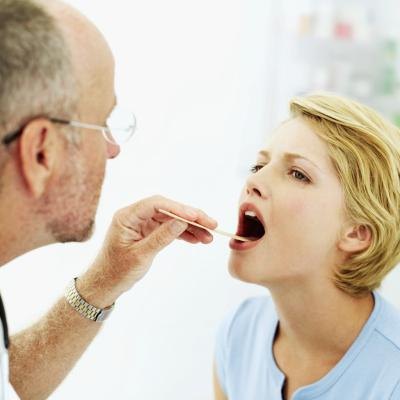
Having an exceptionally dry mouth can be more than an annoyance: It can be uncomfortable and severe enough that even talking becomes difficult. Also called xerostomia, dry mouth occurs when saliva decreases substantially. The causes of dry mouth syndrome may be temporary or related to some underlying cause or disease. Dry mouth can become a chronic condition, requiring treatment.
Function
Saliva is made up of 99 percent water plus infection-fighting lubricants, enzymes and proteins that assist in digestion. The average healthy adult produces approximately three pints of saliva every day. Saliva is essential to keeping soft tissues of the mouth healthy and helping wash away food debris. It also neutralizes the acids produced by plaque, which can cause tooth decay.
Without saliva's lubricating effects, you may experience difficulty in swallowing, chewing, tasting and your ability to talk can be diminished.
Without saliva's lubricating effects, you may experience difficulty in swallowing, chewing, tasting and your ability to talk can be diminished.
Causes
Other than the simple causes of dry mouth, such as snoring, dehydration and mouth breathing, there are basically three factors to consider: medications, medical conditions and their treatments, or excessive anxiety and stress. Older adults tend to experience this annoying syndrome more than young people. Sore throat, hoarseness and dry nasal passages may also accompany dry mouth.
Medications
Prescription medications and over-the-counter medicines may be the root cause of dry mouth. Drymouth.info reports that more than dry mouth is a side effect of more than 1800 medications, including medications for high blood pressure, anxiety, depression, allergies, weight loss pain and Parkinson's Disease. Decongestants, diuretics, water pills and muscle relaxants may also contribute to the discomfort of dry mouth.
Health
Certain medical conditions and their treatments contribute to dry mouth. People undergoing cancer treatments, such as chemotherapy and radiation near the salivary glands in their head and/or neck, often experience trauma and damage to these glands so severe, they can no longer produce enough saliva. In some cases, people may produce no saliva at all. An autoimmune disease, called Sjogren's syndrome affects the moisture-producing glands in the mouth and the eyes, which results in severe dryness. People with diabetes, Alzheimer's and stroke also may experience dry mouth.
Stress
"Fight or flight" is a term that describes a process your body goes through when you are frightened, excited, anxious or acutely stressed. The process involves increased heart rate, increased blood pressure, constricting of blood vessels and drying up of mucous membranes in the eyes and mouth. Your body signals you to either run or fight. Adrenaline and cortisol are released and your body responds in a cascade of physical reactions. Frequent bouts of stress cause decreased saliva and the soft tissues in your mouth become irritated, inflamed and susceptible to infection.
Significance
Since decreased saliva leads to the increase of bacteria in your mouth, ignoring the situation can lead to bad breath, bleeding gums, canker sores, gingivitis, loss of teeth, mouth sores, cavities and tooth abscesses. Serious conditions can result from poor mouth hygiene, including cardiovascular disease, bacterial pneumonia, osteoporosis and even cancer.
Prevention/Solution
Consumer Guide to Dentistry recommends that you speak with your dentist and perhaps a periodontist if you experience moderate or severe dry mouth that interferes with swallowing and talking. You also can suck on sugar-free candy, increase your fluids to include frequent sips of water, chew sugar-free gum to stimulate saliva, suck on ice chips, and use oral sprays or gels formulated to increase moisture. The Journal of the American Dental Association cautions you to avoid caffeine, alcohol, consumption of carbonated beverages, and tobacco products. The ADA also recommends brushing and flossing twice per day and using cleansing, anti-bacterial mouth rinses.
www.livestrong.com





No comments:
Post a Comment